第6章 ON SOME TECHNICAL ELEMENTS OF STYLE IN LITERATURE(
Here, then, we have a fresh pattern - a pattern, to speak grossly, of letters - which makes the fourth preoccupation of the prose writer, and the fifth of the versifier.At times it is very delicate and hard to perceive, and then perhaps most excellent and winning (I say perhaps); but at times again the elements of this literal melody stand more boldly forward and usurp the ear.It becomes, therefore, somewhat a matter of conscience to select examples; and as I cannot very well ask the reader to help me, I shall do the next best by giving him the reason or the history of each selection.The two first, one in prose, one in verse, I chose without previous analysis, simply as engaging passages that had long re-echoed in my ear.
'I cannot praise a fugitive and cloistered virtue, unexercised and unbreathed, that never sallies out and sees her adversary, but slinks out of the race where that immortal garland is to be run for, not without dust and heat.' Down to 'virtue,' the current S and R are both announced and repeated unobtrusively, and by way of a grace-note that almost inseparable group PVF is given entire.The next phrase is a period of repose, almost ugly in itself, both Sand R still audible, and B given as the last fulfilment of PVF.In the next four phrases, from 'that never' down to 'run for,' the mask is thrown off, and, but for a slight repetition of the F and V, the whole matter turns, almost too obtrusively, on S and R; first S coming to the front, and then R.In the concluding phrase all these favourite letters, and even the flat A, a timid preference for which is just perceptible, are discarded at a blow and in a bundle;and to make the break more obvious, every word ends with a dental, and all but one with T, for which we have been cautiously prepared since the beginning.The singular dignity of the first clause, and this hammer-stroke of the last, go far to make the charm of this exquisite sentence.
But it is fair to own that S and R are used a little coarsely.
'In Xanady did Kubla Khan (KANDL)A stately pleasure dome decree,(KDLSR)Where Alph the sacred river ran, (KANDLSR)Through caverns measureless to man,(KANLSR)Down to a sunless sea.' (NDLS)Here I have put the analysis of the main group alongside the lines; and the more it is looked at, the more interesting it will seem.But there are further niceties.In lines two and four, the current S is most delicately varied with Z.In line three, the current flat A is twice varied with the open A, already suggested in line two, and both times ('where' and 'sacred') in conjunction with the current R.In the same line F and V (a harmony in themselves, even when shorn of their comrade P) are admirably contrasted.And in line four there is a marked subsidiary M, which again was announced in line two.I stop from weariness, for more might yet be said.
My next example was recently quoted from Shakespeare as an example of the poet's colour sense.Now, I do not think literature has anything to do with colour, or poets anyway the better of such a sense; and I instantly attacked this passage, since 'purple' was the word that had so pleased the writer of the article, to see if there might not be some literary reason for its use.It will be seen that Isucceeded amply; and I am bound to say I think the passage exceptional in Shakespeare - exceptional, indeed, in literature; but it was not I who chose it.
'The BaRge she sat iN, like a BURNished throNe BURNT oN the water: the POOP was BeateN gold, PURPle the sails and so PUR* Fumed that * per The wiNds were love-sick with them.' It may be asked why I have put the F of 'perfumed' in capitals; and I reply, because this change from P to F is the completion of that from B to P, already so adroitly carried out.Indeed, the whole passage is a monument of curious ingenuity; and it seems scarce worth while to indicate the subsidiary S, L, and W.In the same article, a second passage from Shakespeare was quoted, once again as an example of his colour sense:
'A mole cinque-spotted like the crimson drops I' the bottom of a cowslip.' It is very curious, very artificial, and not worth while to analyse at length: I leave it to the reader.But before Iturn my back on Shakespeare, I should like to quote a passage, for my own pleasure, and for a very model of every technical art:
But in the wind and tempest of her frown, W.P.V.F.(st) (ow)Distinction with a loud and powerful fan, W.P.F.(st) (ow) L.
Puffing at all, winnows the light away;
W.P.F.L.
And what hath mass and matter by itself W.F.L.M.A.
Lies rich in virtue and unmingled.'
V.L.M.
From these delicate and choice writers I turned with some curiosity to a player of the big drum - Macaulay.I had in hand the two-volume edition, and I opened at the beginning of the second volume.Here was what I read: